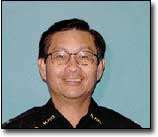KILAUEA — Kilauea residents asked for help on how to rid their communities of some of the problems caused by drug abuse. Kaua‘i politicians responded by showing up Tuesday night to give their input at the Kilauea Neighborhood Center. A
KILAUEA — Kilauea residents asked for help on how to rid their communities of some of the problems caused by drug abuse.
Kaua‘i politicians responded by showing up Tuesday night to give their input at the Kilauea Neighborhood Center.
A joint effort between the Kilauea Neighborhood Association and the county’s Ka Leo O Kaua‘i, the meeting showcased county and state officials’ contributions to combating the problems with drug abuse, namely methamphetamines.
State Sen. Gary Hooser, D-Kaua‘i-Ni‘ihau; state Rep. Mina Morita, D-North Kaua‘i-East Kaua‘i; and Kaua‘i anti-drug coordinator Roy Nishida all gave presentations on their efforts, and Mayor Bryan J. Baptiste, Kaua‘i Police Commission member Michael Ching, County Councilmember Jay Furfaro were in the audience, as well as a number of Kaua‘i Police Department officers in uniform.
But it was KPD interim chief K.C. Lum and Lt. Miles Tanabe who were peppered with the most questions from the public.
“All the things we heard so far is what the government is doing for you,” said Tanabe. His presentation “is what you can do for yourselves.”
Tanabe and Lum stressed that calls received by the police department are vital to investigations, and they urged public patience.
Information is accumulated when someone calls the police, Tanabe said. Sometimes the effect is not immediate, but it’s vital to the police’s case, he added.
“When we do cases, we want to build a case that’s ironclad” before an arrest, Tanabe said. “It just takes time.”
Tanabe also explained the Neighborhood Watch program, and offered it to concerned citizens as a “way to get information for you and for your to get information to us.
“It’s a two-way-communication street,” Tanabe explained. “It’s a way for you to give us information that might be a key point of information we are looking for, and a way for us to educate you on the latest trends” in law enforcement.
“We found the way we were doing policing in the ‘60s, ‘70s, and ‘80s was wrong. We said we don’t want you to get involved,” said Tanabe. “We were putting police in nice, air-conditioned cars.
“We want to go back to when police talked to the community and the community talked to the police,” he stressed. “What we want you to do is get to know your neighbors and watch out for each other.”
Two police officers at any given time are responding to complaints on the North Shore, said Tanabe, and that’s if they are not on other calls, or booking someone, or writing reports.
So the community can have a huge hand in combating crime on the island by getting organized through the Neighborhood Watch program, he added.
Tanabe said that when Princeville residents started their watch program, burglaries went down 90 percent.
“You put people on notice,” he said. “You become part of an entity” at the local, state, and national level.
“What you are going to see is a reduction in crime,” he said. “It’s a way to get in touch with the police. Now you have somebody to report (a suspicious person) to.”
Most of all, he said, if you see something that is off, call the police.
“It could be the piece of the puzzle we need,” Tanabe added. A seemingly small piece of information “might break a whole string of” crimes.
“We can’t cure everything,” said Lum. “Send us your information. It may help. That’s all it takes, folks. We’ll work with you. Search warrants come out of your details.”
The mayor said yesterday he was pleased at the turnout of over 30 people.
“The turnout of the Kilauea community last night made a statement that said, ‘We’re a community united against drugs,’” Baptiste said yesterday in a statement via e-mail.
“To adequately respond to the drug crisis on Kaua’i, all our island communities must be involved,” he said.
“I am wholeheartedly pleased with the partnership that has forged between the Kilauea Neighborhood Association and the Kilauea Ka Leo O Kaua‘i attendees for anti-drug efforts,” he added.
Tom Finnegan, staff writer, may be reached at 245-3681 (ext. 252) or tfinnegan@pulitzer.net.


